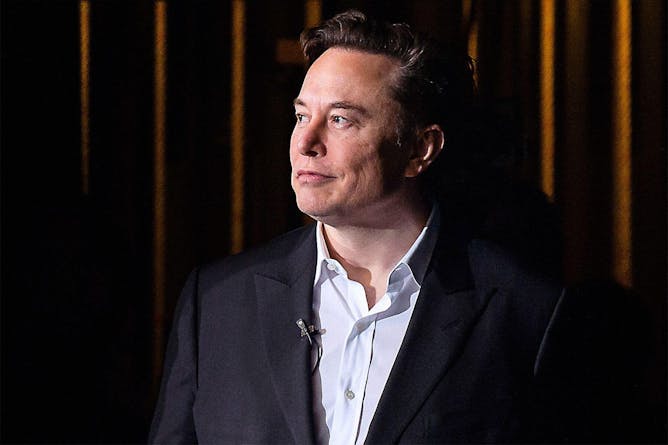|
“Let that sink in!” posted Elon Musk on Twitter, along with a video of him carrying a, er, sink into the social media platform’s headquarters, a year ago this week. This was the moment the world’s richest man took control of his favorite internet hangout for US$44 billion, goading liberals who were already fretting about his plans to dismantle content moderation.
The self-styled “chief twit” hasn’t done much to endear himself to them since, from firing most of the mods, to reinstating banned tweeters such as Donald Trump, to replacing the pretty blue bird with an unseemly black X. Many advertisers walked away, dragging down revenues 59% year on year by May. New chief executive Linda Yaccarino recently said the company is now close to being cash-flow positive, which would have been music to the ears of the company’s mammoth lending syndicate. But with market interest rates now way higher than a year ago, the big question is what happens when X’s loans come up for renewal in a year or two.
The platform has lately been accused of hosting reams of disinformation about the Israel/Gaza conflict, much of which is coming from rogue bot accounts. Getting rid of them would potentially win back a lot of advertisers, so Musk has started piloting a scheme in which new accounts will be charged US$1. Will it work when charging for blue check marks has failed? Hamza Mudassir, a lecturer in strategy at the University of Cambridge, assesses the chances
here.
|

Hamza Mudassir, Cambridge Judge Business School
It’s a year since Elon Musk took charge of Twitter. His plan for charging new customers looks like another mis-step.
|
|
|
Economy
|
-
Daniele Bianchi, Queen Mary University of London
History shows how conflicts can create uncertainty that can rattle financial markets. This could feed into consumer price inflation, keeping it higher for longer.
|
|
Business
|
-
Stein Monteiro, Toronto Metropolitan University; Bradley Bernard, Toronto Metropolitan University
The Start-Up Visa program is falling short in a number of key areas, including job creation, global trade opportunities and the long-term viability of businesses.
|
|
|
|
Environment
|
-
Helen Spiropoulos, University of Technology Sydney; Rebecca L. Bachmann, Macquarie University
There are perverse incentives to exaggerate sustainablity claims – made easier by the lack of uniformity in measuring and reporting such results.
|
|
Labor
|
-
Karla Goldman, University of Michigan
On Oct. 11, 2023, a new memorial was unveiled at the site of the 1911 fire. A cadre of young Jewish women helped push for change in the wake of the tragedy.
|
|